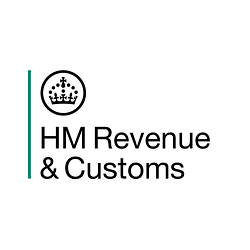
Press release -
Care sector abuse of minimum wage rules
EMBARGOED UNTIL 00.01 MONDAY 25 NOVEMBER 2013
Care sector workers are in line for nearly £340,000 in back pay as a result of investigations by HM Revenue and Customs (HMRC).
More than 2,400 workers in the care sector were underpaid the National Minimum Wage (NMW) in the last two years across the United Kingdom. Over the two-year period, HMRC looked at jobs across the sector and investigated 224 employers. Some investigations are ongoing, but to date 88 cases have been found to be non-compliant.
These investigations have identified nearly £340,000 in arrears for over 2,400 workers and also over £110,000 in penalties to employers for breaking the law.
Jo Swinson, Employment Relations Minister, said:
“Anyone entitled to the National Minimum Wage should receive it. Paying anything less than this is illegal and unacceptable. Government will take tough action on employers who break the law, as we can see through HMRC’s investigation into the care sector. As well as financial penalties, employers who don’t play by the rules can be publically named and shamed and may even be prosecuted.
“If workers feel they aren’t getting the minimum wage that they are legally entitled to, then they should contact the free and confidential Pay and Work Rights Helpline.”
The results of targeted enforcement carried out by HMRC found that the main reasons offered by care sector employers for not paying the minimum wage included: making illegal deductions such as uniform costs; not paying for time spent training or travelling between care jobs; charges for living accommodation; incorrect hourly pay rates; and incorrect use of apprentice rates.
HMRC’s work is helping to better understand the reasons why some employers break the law and what can be done to prevent this, such as helping raise awareness of how NMW rules apply to the care sector.
Richard Summersgill, Director for Local Compliance at HMRC, said:
“Concerns had been raised about abuse of the rules in the care sector and so HMRC decided to take a closer look to ensure that care workers were getting a fair deal. We checked that employers were operating the rules correctly and when we found the rules were not being followed, we acted quickly.”
“Our investigations found that the reasons for not paying the legal wage varied from unpaid working time spent training or travelling between care appointments to making deductions from workers’ pay that brought their pay below the minimum wage. Most employers are honest and pay their staff the correct rate, but this sends a clear message to the care sector that paying the National Minimum Wage is the law, and we will act when we find people not following the rules.“
HMRC’s investigation highlighted some useful steps that employers can take to make sure they are abiding by the law. These include keeping full records of the precise hours, being aware that deductions from workers pay can result in workers receiving less than NMW rates, as well as being aware of the amount of the accommodation offset and ensuring that this is factored into workers’ pay where accommodation is provided.
Anyone who believes they are not being paid the National Minimum Wage can call the Pay and Work Rights Helpline, in confidence, for advice in over 100 languages – on 0800 917 2368.
Notes for editors
1. The Department for Business Innovation & Skills (BIS) has responsibility for National Minimum Wage policy. HMRC enforces the policy.
2. Employers should remember that National Minimum Wage pay rates change on October 1 and there are different rates for different age-bands. This means rates that apply to workers may need to change on birthdays. On 1 October 2013:
- the adult rate increased by 12p to £6.31 an hour;
- the rate for 18-20 year olds increased by 5p to £5.03 an hour;
- the rate for 16-17 year olds increased by 4p to £3.72 an hour;
- the apprentice rate increased by 3p to £2.68 an hour; and
- the accommodation offset increased to £4.91.
3. Further information about the different minimum wage rates, which depend upon age and apprentice status, can be found at https://www.gov.uk/national-minimum-wage-rates
4. Whilst it is not a requirement under NMW law to make separate payments to workers for travelling time, working time records must include details of travelling time and all time 'at work'. These records can be used to check that workers are receiving at least the appropriate NMW rate of pay for their age and status.
5. HM Revenue and Customs has 10 minimum wage enforcement teams operating around the UK. Their job is to follow up complaints about non-payment of the minimum wage made to the helpline and to investigate employers at risk of not complying with the legislation. Enforcement officers also give presentations and talks to groups of employers to educate them about their obligations under the National Minimum Wage legislation.
6. HMRC’s nationwide network of national minimum wage enforcement teams investigate complaints as well as educate employers and employees about what happens if they fail to pay their employees what they are owed.
7. Follow HMRC on Twitter: @HMRCgovUK
Topics
Categories
Issued by HM Revenue & Customs Press Office
HM Revenue & Customs (HMRC) is the UK’s tax authority.
HMRC is responsible for making sure that the money is available to fund the UK’s public services and for helping families and individuals with targeted financial support.

